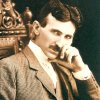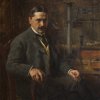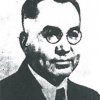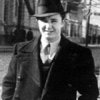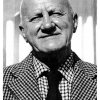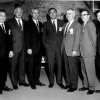Sidebar
Site Map
A great man is one who collects knowledge the way a bee collects honey and uses it to help people overcome the difficulties they endure - hunger, ignorance and disease!
- Nikola Tesla
Remember, remember always, that all of us, and you and I especially, are descended from immigrants and revolutionists.
- Franklin Roosevelt
While their territory has been devastated and their homes despoiled, the spirit of the Serbian people has not been broken.
- Woodrow Wilson
Mihajlo Pupin
Pupin was born in the village Idvor, Banat (then the Austro-Hungarian Empire) to a Serbian family. Pupin emigrated to U.S. when he was only 16.
Paul Rankov Radosavljevich
Похађао је учитељску школу у Сомбору, Пакрацу и Осијеку, где је дипломирао. Студирао је експерименталну психологију и педагогију у Бечу, Јени и Цириху. Докторат из експерименталне психологије стекао је у Цириху код психолога Мојмана (Напредовање заборављања с временом, 1904).
.Radivoje Živadinović
Milomir Stanisic / Миломир Станишић
Miroslav Marcovich / Мирослав Марковић
Apollo 11 American Serbs Team
Pioneers in the United States Space Program
Seven Americans of Serbian descent have had the distinct honor of participating in the construction of Apollo spaceships and by their professional ability and knowledge have contributed to opening the inroads of the infinity of space to our civilization.
.Dimitrije Djordjevic
Dimitrije Djordjevic, Professor of History, Emeritus, at the University of California, Santa Barbara, member of the Serbian Academy of Sciences and Arts in Belgrade, died in Santa Barbara on March 5, 2009, one week after his 87th birthday.
Professor Djordjevic was one of the leading historians of Serbia and the Balkans in the 19th and early 20th century, a man of vast knowledge, held in great esteem in national and international scholarly circles. He was a founding member of the North American Society for Serbian Studies and its former President.
.
